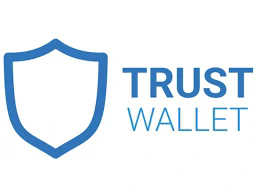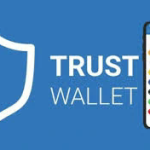A Comprehensive Guide to the Best Crypto Hardware Wallets: An In-Depth Analysis
### Introduction
Cryptocurrencies have surged in popularity over the past decade, prompting the need for secure ways to store these digital assets. While software wallets, exchanges, and custodial services offer convenience, they also come with security risks. This is where hardware wallets come into play. These physical devices are designed to provide a secure environment for storing cryptocurrency private keys. In this article, we will explore the best crypto hardware wallets available today, analyzing their features, advantages, disadvantages, and unique selling propositions to help you make an informed decision.
### What is a Crypto Hardware Wallet?
A crypto hardware wallet is a specialized device that securely stores the private keys required to access and manage cryptocurrency assets. Unlike software wallets that are susceptible to hacking and malware attacks, hardware wallets keep private keys offline, greatly reducing the risk of unauthorized access. They facilitate transactions by signing them within the device, thus keeping sensitive information secure.
### Key Features of Crypto Hardware Wallets
1. **Security**: The primary benefit of a hardware wallet is enhanced security. They are designed to be resistant to physical and digital attacks.
2. **User-Friendly Interface**: Most hardware wallets come with user-friendly interfaces and companion applications, enabling users to manage their crypto assets efficiently.
3. **Multi-Currency Support**: Many modern hardware wallets support a wide range of cryptocurrencies, allowing users to store various digital assets in one place.
4. **Backup and Recovery Options**: Good hardware wallets provide users with recovery seed phrases, which can be used to restore access to funds if the device is lost or damaged.
5. **Durability**: Hardware wallets are built to withstand wear and tear, ensuring that they can be used over a long period.
### The Best Crypto Hardware Wallets
#### 1. Ledger Nano X
**Overview**: The Ledger Nano X is one of the most popular hardware wallets on the market, known for its robust security features and Bluetooth support.
**Key Features**:
– Bluetooth enabled for mobile access
– Supports over 1,800 cryptocurrencies
– High security with a Secure Element (SE) chip
– User-friendly Ledger Live software
**Advantages**:
– Bluetooth capability allows for easy mobile access, a rarity in hardware wallets.
– The extensive range of cryptocurrency support.
**Disadvantages**:
– The price point is higher than some alternatives.
– Bluetooth functionality can potentially introduce security vulnerabilities.
**Conclusion**: The Ledger Nano X is ideal for users who require convenience and security, especially for mobile transactions.
#### 2. Trezor Model T
**Overview**: Trezor Model T is another leading hardware wallet, known for its open-source design and touchscreen interface.
**Key Features**:
– Touchscreen interface for easier navigation
– Supports a wide array of cryptocurrencies
– Open-source software promotes transparency
– Built-in cryptocurrency exchange functions
**Advantages**:
– The touchscreen allows for a more intuitive user experience.
– Open-source nature builds trust in the software security.
**Disadvantages**:
– Higher price compared to other models.
– Limited mobile compatibility compared to Ledger.
**Conclusion**: Trezor Model T is great for users who value an open ecosystem and easy interaction with their wallet.
#### 3. Ledger Nano S Plus
**Overview**: Ledger Nano S Plus serves as a more affordable alternative to the Nano X with strong security features.
**Key Features**:
– Supports over 5,500 cryptocurrencies
– Uses a USB-C connection for ease of use
– Smaller screen, less sophisticated than the Nano X but still functional
**Advantages**:

– More affordable yet retains high-security standards.
– Good for users who need a basic, no-frills device.
**Disadvantages**:
– No Bluetooth support, limiting mobile use.
– Limited storage for apps due to RAM constraints.
**Conclusion**: The Ledger Nano S Plus is ideal for users new to cryptocurrency who want robust security without a significant investment.
#### 4. BitBox02
**Overview**: The BitBox02 offers a minimalist design coupled with strong security features, catering to both beginners and advanced users.
**Key Features**:
– microSD card for backups
– Open-source software allows for greater transparency
– USB-C connectivity
**Advantages**:
– High security with a simple interface makes it user-friendly.
– Clean design with quality materials.
**Disadvantages**:
– Limited cryptocurrency support compared to other options.
– Lacks some advanced features like a touch display.
**Conclusion**: BitBox02 is suitable for users seeking a straightforward and robust hardware wallet without overly complex features.
#### 5. SafePal S1
**Overview**: The SafePal S1 is an innovative hardware wallet that combines affordability with security features.
**Key Features**:
– Supports over 10,000 cryptocurrencies
– User-friendly mobile app integration
– Compact and portable design
**Advantages**:
– Affordable pricing makes it accessible to a wide range of users.
– Extensive cryptocurrency support allows for versatile use.
**Disadvantages**:
– Lacks advanced features found in more expensive wallets.
– The design may not be as durable as other options.
**Conclusion**: SafePal S1 is a perfect entry-level hardware wallet for users who want a combination of affordability and utility.
### Best Practices for Using Hardware Wallets
1. **Keep the Device Firmware Updated**: Always ensure that your wallet’s firmware is up to date to protect against vulnerabilities.
2. **Secure Your Recovery Seed**: Store your recovery seed phrase in a safe place—not on your computer or phone—to prevent theft.
3. **Do Not Share Your Private Keys**: Never share your private keys or recovery phrases with anyone, no matter how trustworthy they may seem.
4. **Use Strong Passwords**: When setting up the wallet, use a strong password for additional security.
5. **Acquire from Authorized Retailers**: Always buy hardware wallets from trusted sources to ensure they have not been tampered with.
### Conclusion
Choosing the right crypto hardware wallet is crucial for securely managing your digital assets. This comprehensive guide has examined some of the best options on the market to help you make an informed decision based on your needs. Whether you are a beginner seeking an affordable option or an expert looking for advanced features, there is a hardware wallet available that can meet your requirements. Always prioritize security and best practices to maximize the safety of your cryptocurrency holdings as the digital asset landscape continues to evolve.


